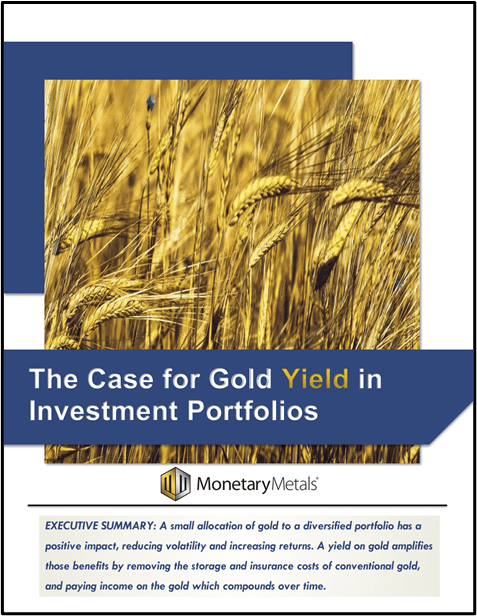The Anti-Concepts of Money: Introduction
This essay is more philosophical than my typical writing. The reason is that I need to say something very important, that flies against everyone’s deeply held beliefs about money. And to get to the root of the issue, I must check and challenge the very concepts with which people think about the subject, in order to explain where I differ and why.
Let me make an analogy. The study of calculus provides a means to understand relationships in the physical world. Calculus teaches general-purpose tools such as slope at a point on a curve, area under the curve, and limit. The ratio of the height to diameter of a conical pile of grain changes, as more grain is poured on top. Calculus enables one to understand this dynamic relationship.
Likewise, the study of epistemology gives one a means to understand things at a fundamental level. Epistemology does not teach about mathematical, but cognitive methods, such as the process of generalization (among other things). Epistemology also teaches general purpose tools. They are not mathematical, but cognitive principles. It does not help one to understand a conical pile of grain. It helps one understand a properly formed concept, and to distinguish it from a rationally unusable pseudo-concept.
The Anti-Concept Idea
Yes, I am saying that not all definitions are correct, even if they are popular. There are requirements for valid concepts.
George Orwell taught the world about this principle. He painted a picture of the kind of dystopia that could occur if a totalitarian government controlled the definitions of the words that matter.
This essay is my explanation of what’s wrong with the concepts related to money (these words are printed in italics). I show that certain terms, starting with money itself, are improperly formed and not rationally usable. This unavoidably challenges the reader, because, when one realizes that a concept is ill-formed, one must rethink everything that depends on it. The effort to radically change one’s viewpoint can be quite daunting.
Consider that, before Galileo, they defined speed as the degree of motion. Everyone knows what this means, at least at a superficial level. This definition is good enough, so long as you don’t plan to make a serious study. In other words, good enough for the layman, perhaps, but not for the scientist.
Galileo defined speed as the change in distance per unit of time. His identification opened the field of physics. You cannot go anywhere from “degree of motion”. But you can measure meters per second, and you can develop further concepts such as acceleration, momentum, etc.
The pre-Galilean definition of speed may have inhibited a scientific study of physics. But it was not an anti-concept. It was the wrong definition, but not a wrongful definition. Motion does have something akin to degree, at least all rates of motion are not equal.
An anti-concept is defined wrongfully. Defining a concept wrongfully is like asserting a false premise. However, it is much more damaging. A wrongful definition smuggles in the false premise covertly. It is designed to bypass the mind’s defense mechanisms and inject a bad idea into the foundation of one’s thinking.
Minimum Wage vs Slavery
It may be helpful to compare these two different mechanisms. Suppose that someone tells you that a minimum wage law helps workers. You can examine this premise, ask questions about it, and easily enough conclude that this premise is false.
But now suppose that the definition offered for employment is: capitalist exploitation of labor. If you object, the definition’s promoters can point to slavery, children working in toxic heavy metal mines in undeveloped nations, the Triangle Shirtwaist Factory fire, etc.
It’s hard to respond to these examples. The world has always had slavery, and there are many cases of trafficking and child laborers forced to work in poor conditions. There really was a fire at Triangle, Triangle really did lock the doors to keep employees in, and the fire really did kill 146 workers. It is no false claim. The definition is no mere false premise. The problem with this definition goes deeper.
The very definition smuggles the idea that trade is win-lose, zero-sum. It gets you to accept that a voluntary employment relationship between two free and consenting adults is the same as slavery—that there is no such thing as a truly voluntary employment relationship. It does this by a trick. The trick is by putting both free employment and slavery into the same word.
One cannot argue against this by denying that criminal gangs kidnap children and sell them as slaves in overseas markets. They do.
One must argue that slavery and employment are different concepts. That any attempt to bundle them together into one word, forms a rationally unusable pseudo-concept.
Such a pseudo-concept has but one use: to make you think of slavery in any discussion of employment and wages in America.
Anti-Concept Epistemology
Millions of people know Ayn Rand as a passionate advocate of free markets, and the author of Atlas Shrugged. She is not as well known for writing about epistemology. She should be.
Here is what she said on the topic of concept formation:
“A concept is a mental integration of two or more units possessing the same distinguishing characteristic(s)…”i
For the integration to be useful, one must integrate based on essential characteristics. If one attempted to integrate based on random attributes, one would end up with junk. But of course, with words that really matter, the non-essential attributes offered are not random at all. They are deliberately selected, as a means to fool even observant minds.
For example, defining employment based on the nonessential characteristic that one party performs work for the other. To accept this is to be unable to distinguish between a mutually beneficial win-win trade, vs win-lose exploitation such as slavery. The essential characteristic of employment is mutually beneficial and consensual agreement to pay for work.
In another essay, Rand said:
“…the purpose of a definition is to distinguish the things subsumed under a single concept from all other things in existence; and, therefore, their defining characteristic must always be that essential characteristic which distinguishes them from everything else.ii
Keep this in mind throughout this essay (and whenever you encounter concepts). What makes employment different than friendship, volunteering, charity, romance, etc.? Employment is a relationship where one party pays the other for work.
The Definition of Anti-Concept
A concept is defined by its genus and differentia. For employment, the genus is a relationship wherein one party performs work for the other. The differentia is pay (which subsumes consent).
Now we are ready for Ayn Rand’s definition of anti-concept:
“An anti-concept is an unnecessary and rationally unusable term designed to replace and obliterate some legitimate concept. The use of anti-concepts gives the listeners a sense of approximate understanding. But in the realm of cognition, nothing is as bad as the approximate…”iii
Notice the word “obliterate”. That’s exactly what such a bogus definition of employment does. If one accepts that employment means exploitation, much less if one thinks that relationships are necessarily win-lose, then one cannot even conceive of a proper concept of employment. One literally cannot grasp that there is such a thing as voluntary trade for mutual benefit, between employers and employees.
This is exactly what I have observed in arguing with socialists over many years. They have a cognitive blind spot. And they attempt to blind your cognition by pushing their anti-concepts at you.
Anti-concepts are deadly.
NB: throughout the following discussion, I present words that are anti-concepts as conventionally defined. There is no reason why the word money couldn’t refer to a proper concept (which I present in the discussion). The problem is that people use this word today as an anti-concept, that obliterates this proper concept.
Make sure to subscribe to our YouTube channel and weekly newsletter to stay up to date on the latest breaking news happening in the markets and how to protect yourself.
Want to talk with us about our Gold Fixed Income products? Schedule a call with a Relationship Manager today!
Additional Resources for Earning Interest on Gold
If you’d like to learn more about how to earn interest on gold with Monetary Metals, check out the following resources:
In this paper we look at how conventional gold holdings stack up to Monetary Metals Investments, which offer a Yield on Gold, Paid in Gold®. We compare retail coins, vault storage, the popular ETF – GLD, and mining stocks against Monetary Metals’ True Gold Leases.
The Case for Gold Yield in Investment Portfolios
Adding gold to a diversified portfolio of assets reduces volatility and increases returns. But how much and what about the ongoing costs? What changes when gold pays a yield? This paper answers those questions using data going back to 1972.












Keith,
I just know I’m going to enjoy this series.
What you (and Ayn Rand) call “Anti-concepts”, I called “Trojan mind-worms” in my most recent (4th) SubStack article. It’s entitled “#4 The Bank of England exposes the illusion of bank “credit-lending””.
Regards
Pat Cusack